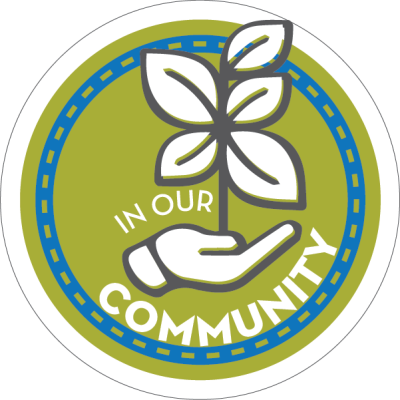Jan. 5, 2024 – After any tragedy, it can be hard to know where to turn or how to talk to children about what has happened. In response to the school shooting in Perry on Jan. 4, staff at the Grant Wood Area Education Association shared a list of resources for parents and caregivers. These are some of them.
-
“Talking to Children About Violence: Tips for Families and Teachers” - National Association of School Psychologists
-
“Managing Strong Emotional Reactions to Traumatic Events: Tips for Families and Teachers” - National Association of School Psychologists
-
Talking with children about difficult things in the news - Fred Rogers Institute
-
Parent Guidelines for Helping Youth After the Recent Shooting - The National Child Traumatic Stress Network
-
Coping in the Aftermath of a Shooting - American Counseling Association
-
An Age-by-Age Guide to Talking to Children About Mass Shootings - The New York Times
The library also has books that can help children – and their adults – process the anxiety and feelings that can result from scary and sad news.
Books are available to borrow or put on hold through the Metro Library Network by clicking on the covers below. Descriptions come from our catalog, which pulls from a variety of sources, as well as from publisher information.
For Children
"The Breaking News" by Sarah Lynne Reul
When devastating news rattles a young girl's community, she tries her hardest to respond to it as compassionately and positively as possible.
"When Sadness is at Your Door" by Eva Eland
Sadness can be scary and confusing at any age! When we feel sad, especially for long periods of time, it can seem as if the sadness is a part of who we are – an overwhelming, invisible, and scary sensation. Eva Eland approaches this feeling as if it is a visitor. She gives it a shape and a face, and encourages the reader to give it a name, all of which helps to demystify it and distinguish it from ourselves. She suggests activities to do with it, like sitting quietly, drawing, and going outside for a walk. The beauty of this approach is in the respect the book has for the feeling, and the absence of a narrative that encourages the reader to “get over” it or indicates that it’s “bad,” both of which are anxiety-producing notions.
"Something Happened in Our Park: Standing Together After Gun Violence" by Ann Hazzard
Miles wants to move away after his cousin Keisha is accidentally shot in their neighborhood park, but Keisha and Miles' father work with others to make their community a safer place.
"Most People" by Michael Leannah
This book looks at the goodness of most people, pointing out how many more people there are in the world who would like to help others than would like to hurt them, and even most of those who do bad things can change.
"A Terrible Thing Happened" by Margaret M. Holmes
After Sherman sees something terrible happen, he becomes anxious and then angry, but when a counselor helps him talk about these emotions he feels better.
"Love" by Matt de la Pena
Illustrations and easy-to-read text celebrate the bonds of love that connect us all.
"There Was a Hole" by Adam Lehrhaupt
Lily imagines her sadness as a hole, which is getting bigger and swallowing up her life – until a friend shows her how to patch her hole and make it managable.
For Teens
"The PTSD Survival Guide for Teens: Strategies to Overcome Trauma, Build Resilience & Take Back Your Life" by Sheela Raja
In this compassionate guide, you'll find skills based in cognitive behavioral therapy (CBT), dialectical behavior therapy (DBT), and acceptance and commitment therapy (ACT) to help you tackle anxiety and harmful avoidance behaviors; manage negative emotions; cope with flashbacks and nightmares; and develop trusting, healthy relationships – even if your trust in others has been shaken to the core. You'll also learn more about the diagnosis and symptoms of PTSD and understand what kind of help is available to you.
For Adults
"When the World Feels Like a Scary Place: Essential Conversations for Anxious Parents & Worried Kids" by Abigail H. Gewirtz
In our complicated world, big issues make both parents and children anxious. So how should parents talk to their kids about the things that make both parent and child on edge – from family financial issues to school shootings to global warming? Here, an expert child psychologist offers parents scripts for conversations that will help us raise kids who are informed, engaged, and confident.
"Finding Comfort During Hard Times: A Guide to Healing After Disaster, Violence, and Other Community Trauma" by Earl Johnson
Finding Comfort is about providing emotional and spiritual care following a mass fatality incident like a mass shooting, terrorist act, or catastrophic natural disaster. Through examples and practical suggestions, it explores the needs of those who are suffering and how those needs can be met.
